Ketamine, a dissociative anesthetic, is increasingly being studied for its potential to treat addictions. As a result, ketamine for addiction treatment and the treatment of alcohol dependence is garnering more interest by the day.
Substance use disorder (SUD) is a newer and more widely accepted term for addiction. Mental health professionals feel SUD causes less stigma than older terms like “addiction” or “alcoholic.” Ketamine for alcohol and drug treatment also exemplifies a new way of thinking.
Studies have shown that ketamine infusion therapy may help people struggling with addictions by reducing cravings for alcohol and other drugs. Ketamine has been shown to be most effective for substance use disorders that involve alcohol, opioids, and cocaine. Ketamine can also help with withdrawal symptoms and mood disorders.
What Is Ketamine?
Ketamine is a dissociative anesthetic drug that was first synthesized in 1962. Used extensively for anesthesia and chronic pain, ketamine is also used in veterinary medicine. Ketamine works by blocking the NMDA receptors in the brain and a neurotransmitter called glutamate. The NMDA area is involved in pain perception, learning, and memory.
In addition to its anesthetic properties, ketamine’s benefits in mental health applications have been extensive. Ketamine has been used to treat a variety of mental health conditions, including depression, anxiety, and post-traumatic stress disorder (PTSD). Ketamine has also shown promise in mitigating suicidal thoughts.
Ketamine is typically administered through intravenous (IV) infusions, but it can also be given by injection or orally. There is even a nasal spray with FDA approval. A series of infusions are often used rather than a single infusion. Studies have shown that the series can provide a compounding effect on clients who see a benefit from ketamine.
Ketamine can be an effective treatment for certain conditions when used under medical supervision. Like any drug, if used improperly, it has the potential for abuse. The potential side effects of ketamine also require properly trained medical administration.
Ketamine and Co-Occurring Disorders
Most substance use disorder treatment clients have an underlying diagnosis that contributes to their misuse of substances. Ketamine has shown a unique ability to treat major depressive disorder rapidly and effectively, treatment-resistant depression, anxiety, and PTSD. These factors alone make ketamine a promising option for those struggling with co-occurring mental health disorders. With continuing research, ketamine may become even more commonplace in the treatment of substance use disorders.
Research suggests that ketamine combined with therapy may be even more effective than using ketamine alone. Trained therapists can help individuals process and integrate their ketamine experiences, providing them with new insights and coping strategies. In addition, therapy can address underlying issues that may contribute to less-than-desirable behaviors, such as substance use disorders. Successful treatment for depression and anxiety may be the biggest factor in sustaining long-term recovery for many.
Combining ketamine therapy with psychotherapy can lead to more long-lasting and meaningful improvements in mental health. Therefore, it is important to work with licensed and experienced healthcare professionals when exploring treatment options. Doing so can make ketamine an effective adjunct in substance abuse treatment for some.
What to Look For in a SUD Treatment Program
What should you look for when searching for a substance use disorder program that may include ketamine treatment? It is certainly important to look for more than just the availability of ketamine treatments. Here are some key things to consider:
- Accredited and licensed: Ensure that the program is accredited by a reputable organization and licensed by the appropriate governing bodies.
- Qualified professionals: Make sure the program has qualified professionals trained and experienced in the use of ketamine for substance use disorders.
- Comprehensive assessment: Look for a program that conducts a complete assessment of each client’s needs. The assessment must include physical, psychological, and social needs.
- Evidence-based practices: The program should use evidence-based practices that have been proven effective in treating substance use disorders.
- Individualized treatment plans: Each client should have an individualized treatment plan. The plan must be tailored to unique needs, including the option for ketamine-assisted psychotherapy if appropriate.
- Ongoing support: Initial treatments alone are not enough. Look for a program that offers ongoing support and aftercare to help the client maintain their recovery.
- Private and confidential: Ensure that the program takes client privacy and confidentiality seriously and adheres to strict ethical standards.
When selecting a substance use disorder program that includes ketamine-assisted psychotherapy as an option, we encourage due diligence. By considering the factors above, one can make a more informed decision.
Contact Athens Recovery Today
Ketamine treatment can support lasting recovery. Call 844.959.4998 or reach out to our team online to learn more about our approach to treatment and how we can help you heal.

